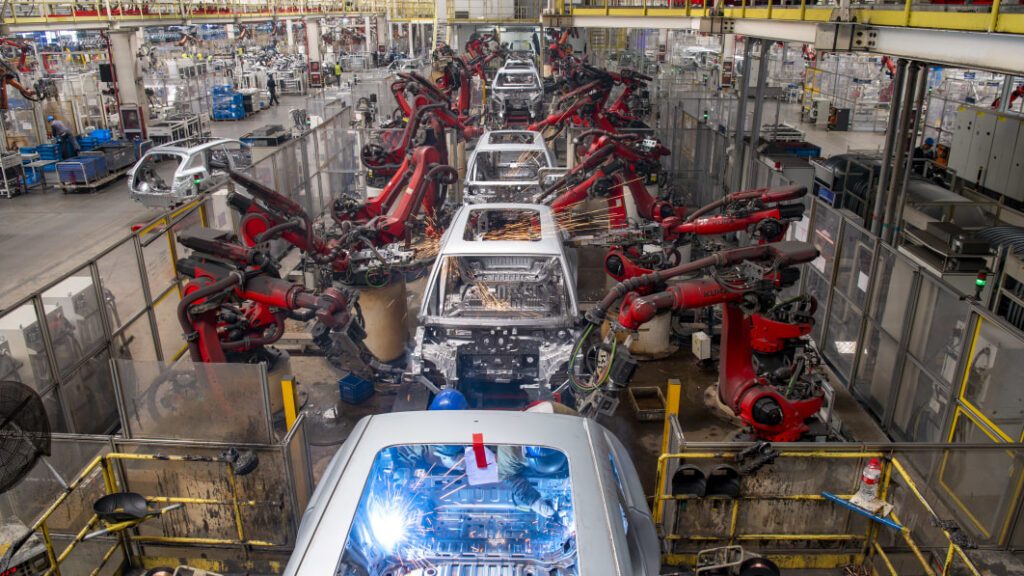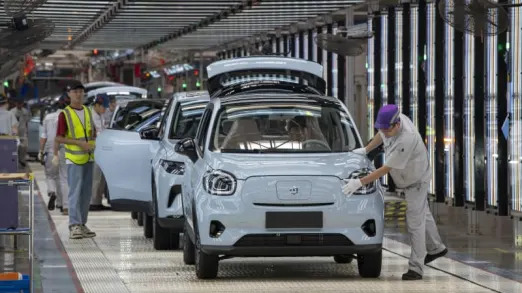Stellantis could build Leapmotor EVs in Europe, North America

DETROIT — Stellantis could build electric vehicles based on technology from Chinese affiliate Leapmotor in Europe, North America or other markets where it needs competitively-priced models to compete with Chinese EV makers, Chief Executive Carlos Tavares said on Tuesday.
“At one point in time, Western governments may be tempted to block Chinese exports,” Tavares said. “We have the opportunity to assemble Leapmotor cars inside the bubble. It could be Europe it could be North America.”
Stellantis is considering building Leapmotor EVs in Italy, Automotive News Europe reported earlier this week. “There’s no reason to exclude any country that has a Stellantis plant,” Tavares said.
The pressure to cut electric vehicle costs will force consolidation among global automakers, Tavares told reporters during a videoconference from New York. But said he has no significant deals under discussion himself.
“We have enough on our plate,” Tavares said.
Earlier this month, Stellantis denied rumors that it was considering a combination with French automaker Renault.

Two Leapmotor models. (Getty Images)
Tavares said there could ultimately be as few as five major automakers as incumbents try to achieve economies of scale to compete with BYD and other rising Chinese automakers.
“You can discuss whether it’s a good thing to fight against big Chinese companies like BYD with an anti-trust lock that prevents the Western companies from getting together,” Tavares said.
Automakers are under pressure “to sell EVs at the price of ICE,” Tavares said, using the acronyn for the internal combustion engine. “As long as we cannot sell EVs at the price of ICE while making a profit, we are not doing what consumers are expecting of us.”
BYD and Chinese EV makers have a 30% production cost advantage over Western automakers, Tavares said.
Tariff “protection will not help,” he said.
If Chinese automakers decide to build factories in Mexico to send vehicles to the United States, the Mexican government will welcome that investment, he said.
Washington will have to choose between breaking the rules of the U.S.-Mexico-Canada trade agreement, or potentially adding to pressure on Mexican workers to migrate to the United States for jobs, he said.







